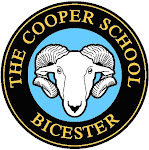These two poems have been flagged as being probematic and ones which you are unsure about. I therefore thought I'd post a commentary on each which I've also recorded as a PODCast. It is however worth pointing out that, because you get a choice of three questions in the exam, it is perfectly possible to avoid writing about either of these two. They are difficult because the do not sit particularly comfortably with the other poems and so comparing them can be hard unless you get the right question.
"Elvis's Twin Sister" Duffy:
Download as PODCast
Here, Duffy writes in the voice of Elvis’s twin sister who died during child birth, imagining that she grew up to be a nun, far removed from the excesses and indulgences of her twin brother’s lifestyle. There are frequent references to the simplicity of her life: “tend the gardens,/ watch things grow” “Gregorian chant/ drifts out across the herbs” however these are in stark contrast to hints about her similarities to her brother: the way she moves her “hips” and her “blue suede shoes”.
This is essentially a poem about the paradox of fame and the ways in which it can destroy a person (see the references to Elvis’s songs “Lonely Street” and “Heartbreak Hotel”) and how, in reality, a simple life can be more fulfilling.
This is a hard poem as it does not compare easily to any of the others but, depending on the question, you could write about the ways people do or don’t gain fulfilment from life (i.e. is life a positive or negative experience). “Elvis’s Twin Sister” leaves this quite open and you could then compare with “Havisham” (negative), “My father thought it…” (negative in the way it regrets the youthful and exuberant things which have happened in the past), “Song of the old Mother” (negative- life has passed her by and she’s never stopped to enjoy it) and “On My First Sonne” (life itself is seen as a painful experience full of pain and loneliness however can seen to be more positive through religious faith).
"Homecoming" Armitage
Download as PODCast
Homecoming is a poem primarily about relationships: both interpersonal and those with our memories and our pasts. In the opening metaphor of the trust exercise, Armitage is outlining what all human relationships aspire to be: trusting and mutually supportive however his use of the word “blind” also implies that this trust will always be a little misplace as no one can ever be completely reliable.
In the second stanza, Armitage goes on to describe a childhood incident surrounding a “canary-yellow cotton jacket” which was clearly a prized possession but was damaged in an incident at school (we can presume this from the words “cloakroom floor”). At first we cannot tell whose memory (or jacket) this is but then Armitage goes on to write: “Back home/ the very model of a model mother, yours,” and, by this, we are introduced to the character to whom these events actually occurred (although there is little indication as yet of who this person is). The mother seems aggressive and intimidating and it is worth noticing Armitage’s use of colours (“red” and “blue”) at the end of the second stanza. Similarly, we see a strained relationship between parents and their children at this point which could be compared to “Mother any distance…” or “Before You Were Mine”
In the third stanza, Armitage’s persona seems to be reaching back into memories that he never really had in exactly the same way as Duffy does in BYWM. He “remembers” himself “waiting by the phone” for the call from the girl who we can presume will later become his lover so that he can support her through these traumatic events and betrayals of her love and trust. We see his love and desire to protect her manifested in his imagining himself in a supporting role despite the fact that it is “sixteen years or so before we’ll meet.” There is a very clear comparison here with “I’m ten years away from the corner you laugh on” in BYWM. The stanza finishes with a quasi-threatening description of the girl’s father, again demonstrating how difficult relationships between parents and children can be.
In the final stanza, Armitage’s persona (or indeed Armitage himself) offers to support the female character and to protect her in a way in which she was not protected at the time these events took place. He uses the yellow jacket of the incident as a metaphor for his own body with which he can support her and make amends for the pain in her past.
Sunday, 23 May 2010
Subscribe to:
Post Comments (Atom)






No comments:
Post a Comment